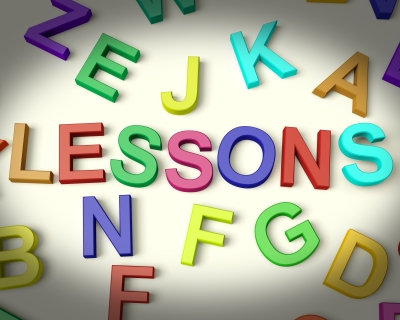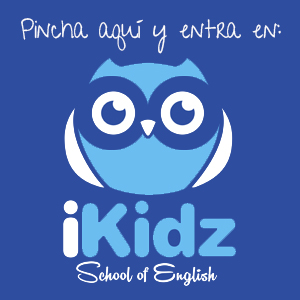As it promised and as the saying goes: "Better late than never", so, such as I promised in the post last week, in this post we will continue to see, according to different studies, which is the best age to start learning a second language.
On the one hand, we will analyze studies that tell us about the learning of a second language before they develop speech and, on the other hand, those studies that refer to learning a second language at older ages as are the 8 years old.
The first study to which I refer is to study the British Columbia College of Canada by Dr. Whitney Weikum in neuropsychologist and psychology professor Janet Werker. These, taking as reference babies between 4 and 6 months, They showed that these were able to differentiate between different languages.
Although this is something that some researchers had already observed previously, they showed that babies could distinguish languages but not even hear the words, how? Good, They found that babies could perceive the subtle differences in the movements of the face of the adult speaking in different languages, something that does not need to say that an adult would be almost unable to perceive.
La Doctora Janet Werker, I affirm that, "Babies pay attention to any information they need when they are very small. What happens is learning to retain only information that is necessary ". Something quite handy, Do not you think?
What they did to reach these conclusions, He was catching babies with their parents and sentarles front of a television in which they were shown a screen in silence and I was dating a woman reading passages from the "Little Prince", the woman was reading at certain times in English and then switched to French (original language of the book). When the change occurred between the languages, the children reacted and watched more closely. Interesting, Truth?
Another study worth mentioning, It was made in the Cornell University by Dr. Barbara Lust and Dr. Sujin Yang. Obviously we will not get to see in detail the study, but it is interesting to note the three main conclusions reached:
- From birth, and even before they speak or understand a language, children begin to process the words that sound around, in order to determine the sounds of language (phonemes) and how sentences (syntax). Around 12 months, most children already have "crumbly" much of these properties so that they are ready to begin producing their first words.
- Once the child begins to produce their first words and begin to combine them into sentences, we begin to see how they develop the ability to relate the sounds of language with their meanings.
- When children reach three years, most are able to control much of the language they have around them.
Therefore, only reference to these two studies, we can see that, despite what many people think, babies are able to distinguish perfectly between two languages, and the fact that teach them two languages from babies to nothing cause them confusion.
In fact, investigations carried out have shown that language learning neural connections babies grow considerably. Further, these neural connections facilitate intellectual development that will not only facilitate the learning of other languages in the future, but also the different learning areas.
In addition to these studies, Magazine Neurology, He has led numerous investigations that have just led to reasoned conclusions on this subject, but among them, I would like to highlight the following: dementia in bilingual patients occurred 4.5 years later than non-bilingual patients, and this difference was especially significant associated with disorders such as Alzheimer's.
As you can see, it is clear that learning a second language as soon as possible should be done as soon as possible and that will produce more effective, but, How to develop learning a second language at an early age?
Below I will detail some basic points that we consider when to "introduce" a second language at an early age, some of them inure to those already mentioned in the post anterior, by the European Union, but I want you to see that there is cohesion between everything said about this topic.
- A an early age to be further developed oral skills compression, before the production, either oral or written, that is to say, like as would occur if it were a mother tongue.
- The visual support is essential, For this we can use bits or images, posters, body language, etc.
- The Learning should be performed in the most natural way possible, so the playful component is essential. To do songs, rhymes and games are the best.
- One of the methodological guidelines in the 2nd cycle Childhood Education is to teach the young the most frequent words of the environment, later gradually introduce more complex sentences. These first words must always be words to designate objects in their immediate environment, so they are linked with their knowledge of the world. This is basically what we discussed earlier about making significant learning.
- We must not forget the teaching formulas or routines. This is nothing more than common expressions that kids assimilate very quickly because they are automated block from small. In the next post I will give you some "tricks" to work these routines at home and at school with the kids.
We have seen from what age and how learning should be done in a second language. But, What if this learning will occur at more advanced ages?
A study in the University of Barcelona (UB) English philologist by Carme Muñoz, It has concluded that the earlier start does not guarantee better results studies. Bearing in mind that we are not talking about an early age.
This studio, It is based on 2.000 tests English students divided into two age groups, who began his apprenticeship at 8 years old, and those who made it to the 11 years old.
According to the study, those students who began their learning later, to the 11 years old, They performed better than those who began to 8 years old.
The explanation for this according Carme Muñoz, is that under conditions of "language immersion" young children, as we have seen before, They are like sponges, but in school learning conditions and contact is much reduced, so they can not absorb equally. Why students 8 years lose the advantage they have relative to older. The children of 11 years have greater intellectual maturity and advantages in school learning when English is not the lingua franca, but an object of study.
This does not mean that there is to start before studying English, but if you start earlier does not guarantee learn more when we talk about these ages.
Following references from different authors and linguists about language learning at this age, I consider it important to mention to Claude Hagège. French linguist argues that eleven are critical to the threshold of phonetics. Therefore, and by reference to the study conducted at the University of Barcelona, before start does not guarantee learn more, but if you get a better pronunciation and play sounds unknown in the mother tongue.
As can be observed, when we talk about language learning we can not comment lightly and must take into account many variables including age.
What if certain is that babies have an advantage over the other children when we talk about a natural learning and expontaneo. Further, It is without question the crucial role of schools and educational organizations, especially considering that it is the latter, which stipulate the number of hours that children are exposed to the language. Do not you think?
As usual, thanks for your time.
Kisses to everyone!
The brain is not a vessel to fill, but a lamp for lighting.
Plutarch
Tags: Learning at an early age, Learning a second language, language learning, Learning English, Babies, Bilingualism, guidelines, second language






 Español
Español English
English Français
Français Deutsch
Deutsch 中文(简体)
中文(简体) Português
Português
